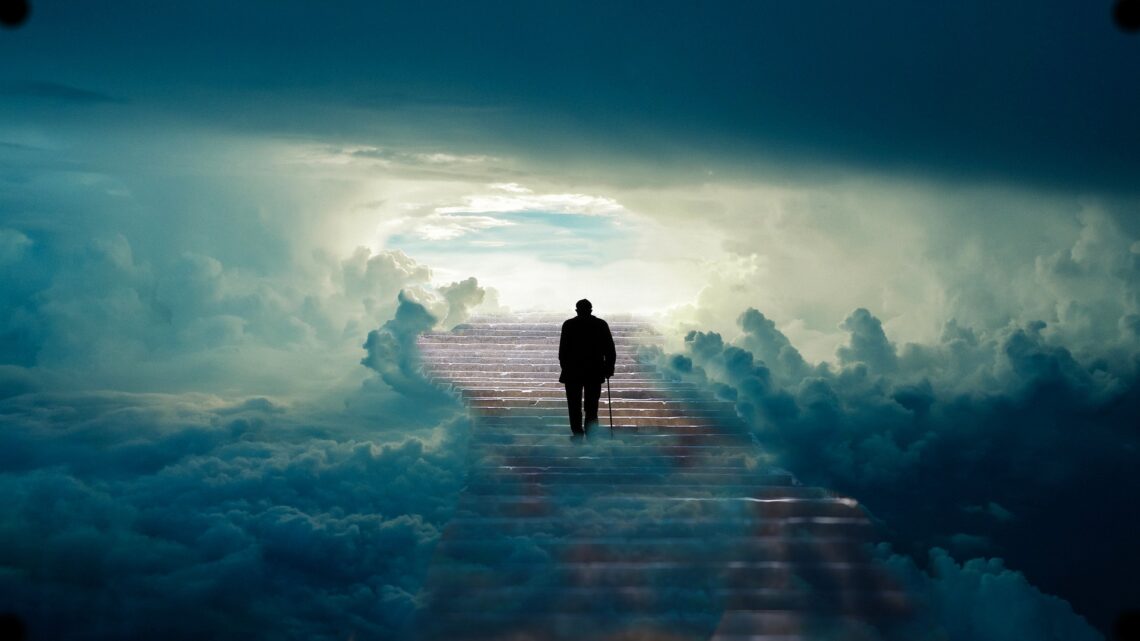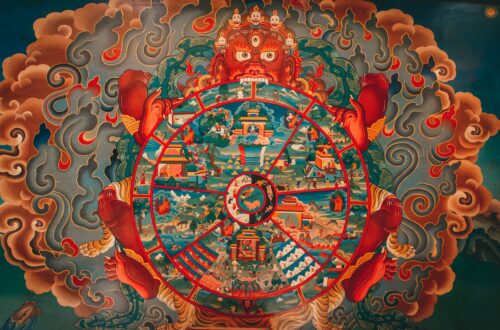
Why Death is So Fascinating
In my last article, I summarized the introduction of the book, Mind Beyond Death by Dzogchen Ponlop Rinpoche (linked here Death) A few months ago, I wrote an article entitled “The Eight Stages of Death” about the eight stages of death talked about in The Tibetan Book of the Dead (linked here Eight Stages). In my next article I want to go over the first chapter in Mind Beyond Death, giving an overview of the bardos.
We hear that term tossed around a lot, but it’s not always clear if we understand what it actually means. So, I want to clarify that topic.
In this article I will explain briefly why I find death fascinating. It wasn’t until I read The Tibetan Book of the Dead that I became so intrigued. It was the part in the book that discussed what happens to the contents of our unconscious when we die, that got my attention.
Death Reveals the Unconscious
The Tibetan Book of the Dead said that when we die all the contents of our unconscious become conscious because we no longer have a body to hold them down. In the after death state whatever we think or feel immediately comes to consciousness, and it does so with ten times the intensity it would if we still had a body. Also, in the after death state, we no longer have any means to escape the onslaught.
By that I mean, we can’t run away and lose ourselves in social media, television, music, drugs or alcohol. We will be defenseless.
That scared the hell out of me. That sounded like a horror movie on steroids. After I calmed down a bit, I thought I could either ignore what I just learned and bury those feelings, along with all the others, or I could take heed and begin to deal with them.
Face our Unconscious Now or Later
The Tibetan Book of the Dead backed me up on this, counseling that it is a lot easier to start processing those unconscious thoughts and emotions while alive then trying to process them all at once while on our death bed.
The book even went so far as to say, that if we prepare properly for death by working on ourselves while alive, that death can actually be a very pleasant experience, even an enlightening one. The book quotes people saying they look forward to death because it measures how much progress they have made in their lives.
Death is like the final exam of our current life. If we have studied and worked hard, we look forward to testing ourselves when the time comes.
The Tibetan Book of the Dead presents a more sophisticated version of the story Christianity gives us, which says if we live good lives, we will be rewarded with heaven, and if we live bad lives we will be punished with hell.
The big difference is the judge is not God, but ourselves.
If we live bad lives, suppressing our true nature to satisfy selfish egoic desire, there will be a reckoning. However, if we access and live from our deeper selves, then our experience of death will be much more positive, maybe even blissful.
I’m not saying I have reached that stage yet, but it is a goal to shoot for.
Studying Death Improves our Life
The Tibetan Book of the Dead made a lot of sense to me. I started working on becoming more mindful in my life. When those negative emotions and thoughts arise, instead of ignoring or suppressing them, I experience them. I found it very helpful to meditate on them. In doing so, they would lessen and eventually go on their merry way.
I discovered in doing this, it made me more mindful and self-aware. That didn’t mean I didn’t have, and still have those moments where I can get overwhelmed by negative thoughts and emotions, but the point is to slowly calm them down.
The strange thing is that in dealing with death, I was becoming more mindful and aware in my everyday life. I was feeling more at ease with myself, not allowing things to get to me so easily. I was experiencing more and more how inextricably life and death are inter-connected. When you work on one, you work on the other.
Writing About Mind Beyond Death
That is why I decided to write about this book, Mind Beyond Death, that I’m reading. First off, in writing about it, I am forced to delve into its contents more deeply so I can write about its ideas with more clarity and insight.
Secondly, I thought other people might gain something from this. It’s paradoxical that in studying more deeply about death, it actually improves our lives. The way I look at it is, we can deal with our crap now, working on ourselves over time, or we can just get bombarded by it all when we die. As I mentioned in my last article, The Tibetan Book of the Dead strongly warns against this latter choice.
The important point, is one way or another, we will have to deal with all of our crap. For me, that was a great motivation to start working on myself now with the goal of making death an easier transition.
Bite Size Pieces or All At Once
It’s so much easier to face our stuff in bite size pieces while alive, than facing it all at once on our deathbed.
So, in my next article, I will go over the first chapter on the bardos. If you would like to get the book and read along with me and contribute to the discussion that would be great. However, if you just want to read the articles and contribute, or just read them and not contribute, or even not read them at all, that’s all fine too.
But, I think if you get into this, you will find, paradoxically, that studying death is a very liberating and life affirming endeavor. It can improve your life in a number of ways. You will find studying death is a great motivator to live an authentic life.
To learn more about the magic of the universe: Click this link: The Magical Universe.




